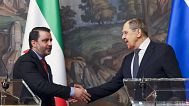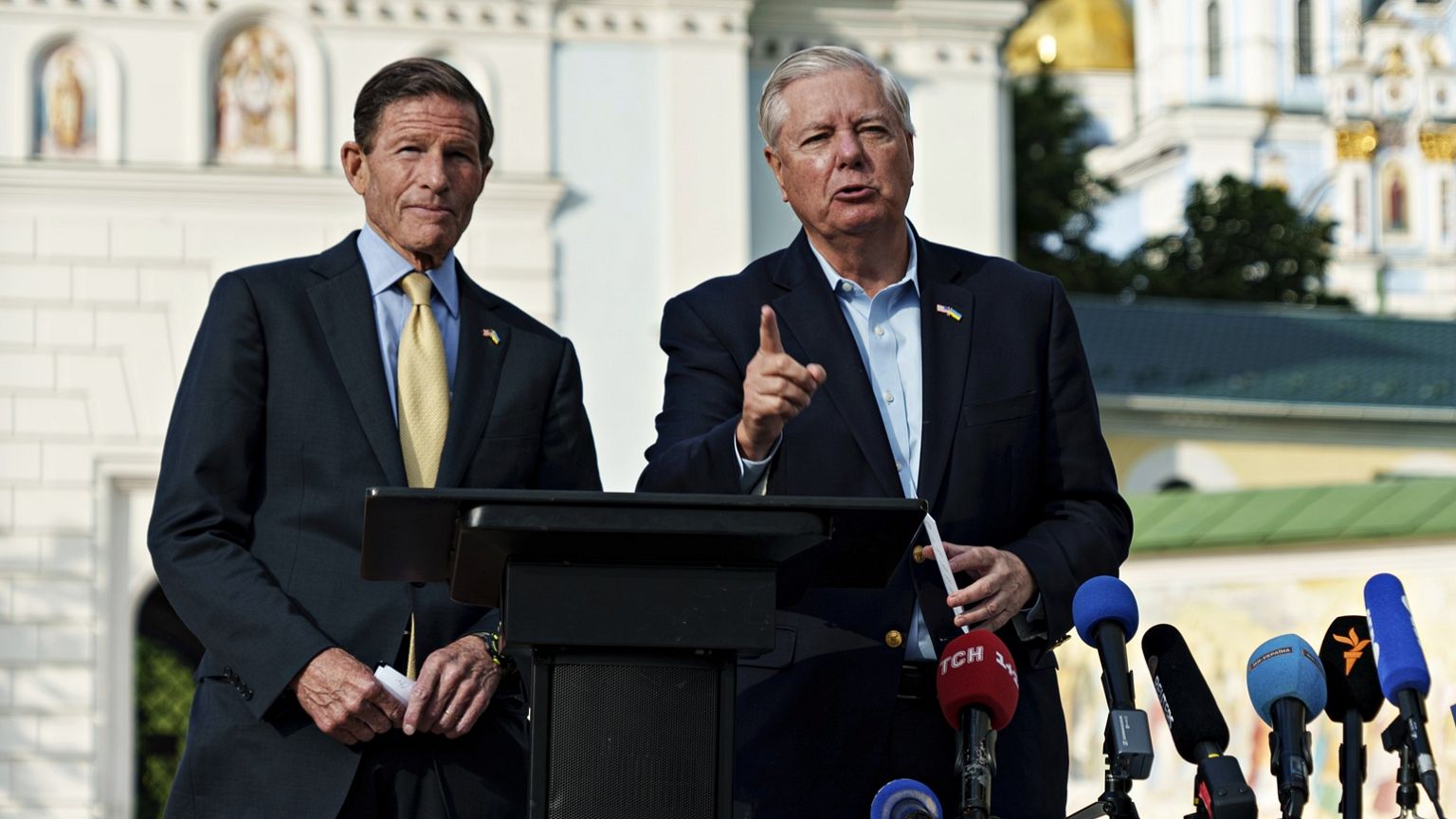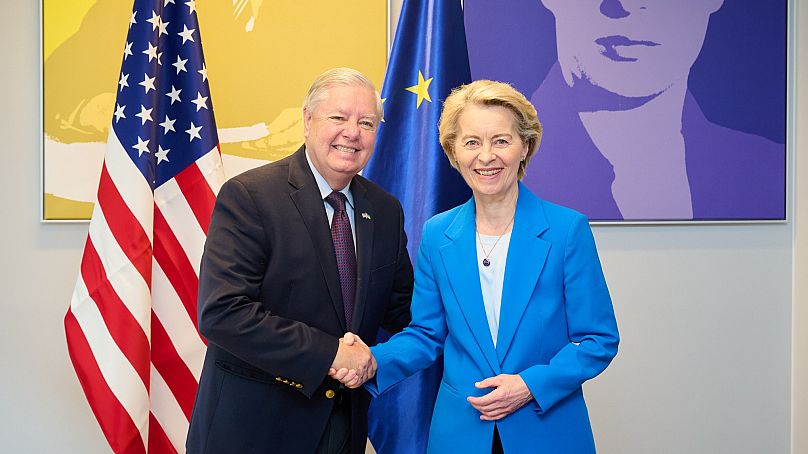The bill promoted by Senators Graham and Blumenthal would impose 500% tariffs on all countries, including those in Europe, that buy Russian energy.
 ADVERTISEMENT
ADVERTISEMENT
The European Commission is confident that the European Union will manage to avoid the economic blowback from a new US Senate bill that envisions 500% tariffs on importers of Russian energy, which, if applied, would wreck about a dozen member states.
"We are in the process of phasing out imports of fossil fuels from Russia, and therefore, this should ultimately not be a problem," Paula Pinho, the Commission's chief spokesperson, said on Tuesday afternoon.
The draft law, jointly promoted by Lindsey Graham, a Republican from South Carolina, and Richard Blumenthal, a Democrat from Connecticut, foresees primary sanctions against Russia and secondary sanctions against its clients in an attempt to force the Kremlin into serious negotiations for a lasting peace in Ukraine.
Graham has described it as "the most draconian bill I've ever seen in my life in the Senate", while Blumenthal said the sweeping restrictions would be "bone-crushing" and place Russia's economy "on a trade island".
The project has amassed over 80 signatures in the 100-seat chamber, an impressive amount of bipartisan support aimed at securing President Donald Trump's backing.
Trump has so far refused to apply further pressure on Moscow, causing dismay among European allies, who have pledged to move forward with restrictions on their own.
European Commission President Ursula von der Leyen met Graham on Monday to discuss new ways to tighten the screws on Russia, including a new package of EU sanctions, which she previewed last month, and the Senate bill.
"Pressure works, as the Kremlin understands nothing else," von der Leyen said.
The read-out from the meeting was positive in tone but conspicuously avoided any reference to the 500% tariffs and the potential havoc it could cause the bloc's economy.
On Tuesday, the Commission sought to assuage these fears by highlighting the growing cooperation between the two sides of the Atlantic, which has suffered no shortage of setbacks since Trump's return to the White House.
"The idea is to coordinate as much as possible (but) it cannot be identical," Pinho said.
"We believe that (...) the combination of these sets of (sanction) packages would have an even greater impact on Russia, and that is the objective, on both sides, on the EU and the US. We're working forward and further in preparing these two."
The spokesperson pointed to the step-by-step roadmap that the Commission has presented to eliminate all remaining purchases of Russian energy by the end of 2027 as proof of the bloc's commitment to cut ties with Moscow. The roadmap is still in the early stages and needs to be fleshed out into legislative texts.
Notably, the bill proposed by Graham and Blumenthal includes a provision that would allow the US president to spare specific countries, goods and services from the 500% tariff through a one-time waiver based on "national security interests".
The two senators have publicly said the prime target of the secondary sanctions would be China and India, the largest importers of Russian oil, rather than Western allies. Still, the 500% tariffs could unleash market turmoil affecting all corners of the world.
"The world has a lot of cards to play against Putin," Graham told the Associated Press after a trip to Kyiv. "We're going to hit China and India for propping up his war machine."
The Commission did not say whether it would formally request the one-time waiver.
"This remains to be seen," Pinho said. "These (sanctions) are being prepared. We don't know whether it will go through in the Senate."
As of today, France, Spain, Belgium, the Netherlands and Portugal buy Russian liquefied natural gas (LNG); Italy, Greece, Hungary, Slovakia and Bulgaria buy Russian pipeline gas; and Hungary and Slovakia buy Russian pipeline oil.
Additionally, five countries – Bulgaria, the Czech Republic, Hungary, Slovakia and Finland – operate Russian-made nuclear reactors that rely on specific Russian-made fuels.














